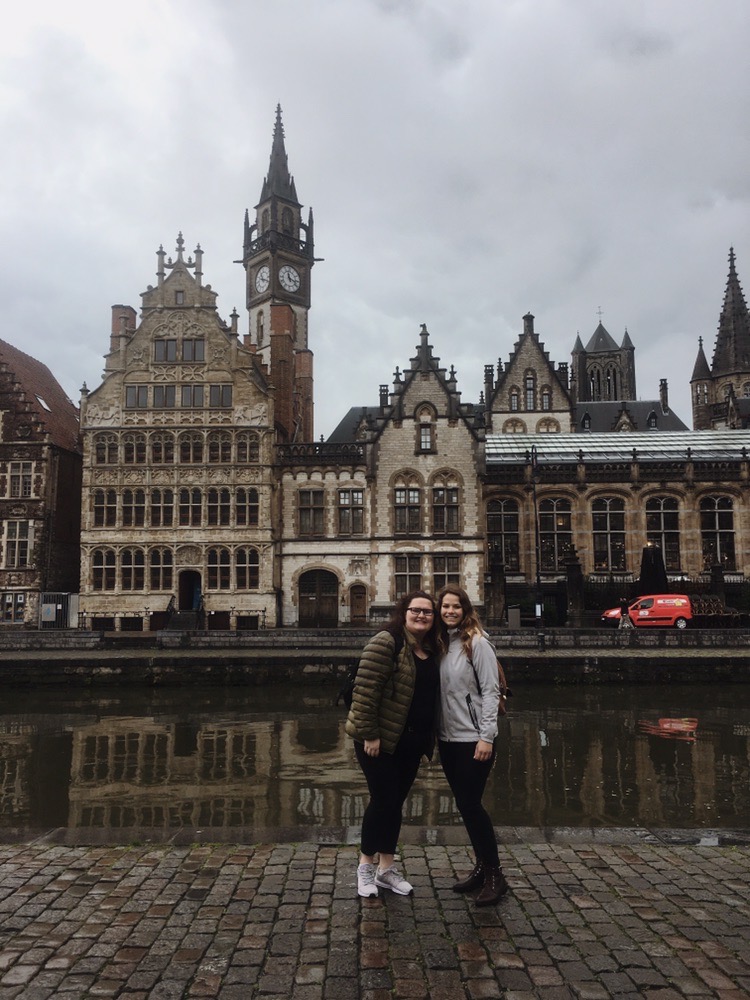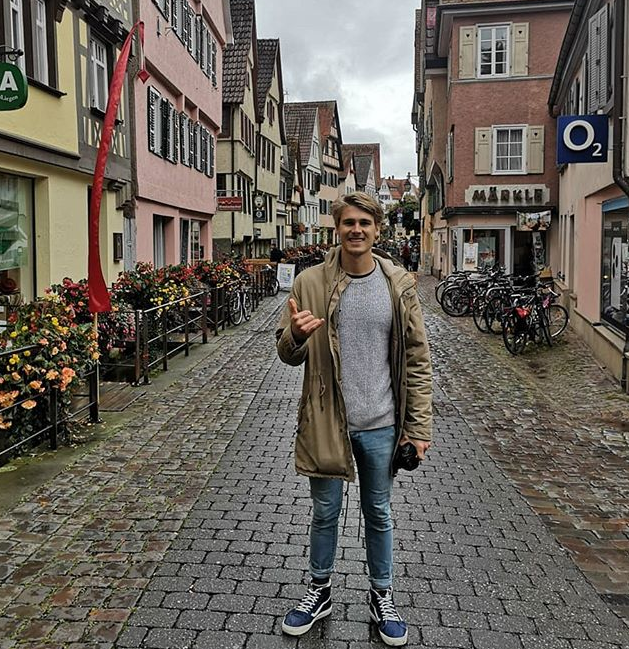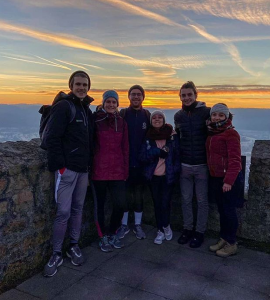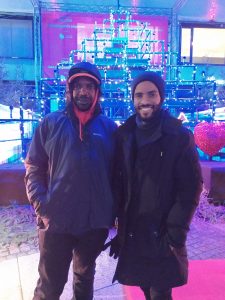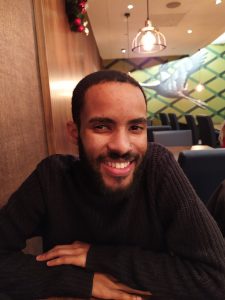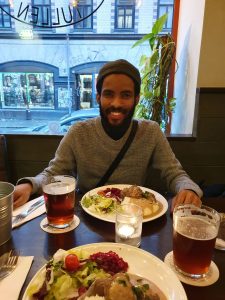Pre-departure:
The time leading up to my exchange certainly can be described as a stretching but beautiful process. Going on a semester abroad and actually living by myself in another country was something that I had never imagined doing. The thought of it brought many different kinds of feelings, however my expectancy for something GRAND outweighed everything. The strangest thing for me to come to terms with was that even though I had known about my exchange since being accepted into BCom(International Business), 2019 had finally arrived and it was time for all my preparations to take place. I definitely took a great amount of time processing all the changes that awaited. I am thankful that I took the time to have real talks with the people that I trust with my heart because by the time I arrived in Belgium, I truly arrived on solid ground and was able to handle everything that came my way. I am so thankful for my leaders, family and friends that walked a road with me of encouraging me and stirring my faith because I knew that I was not going anywhere if it was not BY FAITH. I am also grateful to Sarah for keeping me updated with all the admin requirements and their due dates. She certainly helped me approach the entire process and guided me along the way. Given that this was the first official time that I would be going abroad, everything was incredibly new to me. Fortunately, selecting which university to go to was really simple. The moment I saw KU Leuven (which appeared second on the list of possible designations) my heart was convinced that this was the place I needed to be. Once it was official that I was going to be attending KU Leuven, I began sorting out all the admin involved with finalising my modules, getting accommodation and getting a VISA from the Belgian Consulate. Putting together my learning agreement was also incredibly smooth-sailing as they offered a variety of diverse modules that interested me. I was placed in a university residence within a week of applying which was a great blessing. I quickly discovered that it was necessary for me to get a police clearance certificate and had heard that it could take quite some time. I admit that the thought of this first overwhelmed me, but ended up in the position where I was able to go straight to the head office in Pretoria and hand my application in. What was known to take 4-6 weeks to get done miraculously took 5 days in my case. Because I live in East London, I had to fly back to Cape Town to visit a Belgian Consulate approved doctor in Rondebosch for my medical check-up. Once this was completed, I went for my appointment (which was very easy to get). Because I did not have any source of “official” funding from abroad, I was required to pay an additional fee and had to transfer the minimum amount of spending money into a KU Leuven account, obtain a certificate and provide that as my proof of solvency (which I later learned was necessary for all foreign students). This slowed the process down ever so slightly, however once the certificate had been provided, my VISA was delivered to me within two days. Thereafter I booked my tickets, said my goodbyes and my adventure of a lifetime began on 13 September 2019.
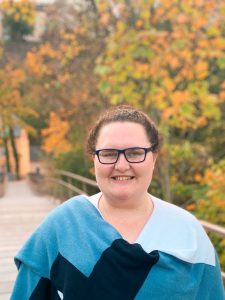
Experience at the Host University:
One of the things that drew me towards KU Leuven was their mantra that they inspire the outstanding. Upon arriving, I quickly saw that things there were done differently but simultaneously had a golden thread that left their structure pretty much in alignment with Stellenbosch. The differences for me included that classes were much longer – ranging between 2-3 hours long each time (students I met on the exchange even had 5 hour classes). The assessment structure of each module typically included a group assignment of some sort as well as one exam at the end of the semester where the entire course’s content was examined. Interestingly, most of my courses did not have text books (meaning that the only study content I had was the slides and notes made in class). One of my modules was even an open book exam and another module did not have exams but three group class presentations. I found that KU Leuven placed great emphasis on group work and class presentations. This certainly forced me to ensure that I had an even greater understanding of the content than usual given that questions would always be asked at the end that would require me to think beyond the box and provide an educated, wisdom-filled answer. I admit that Industrial Organisation, one of my courses, truly forced me out my comfort zone. The module required that we evaluate ongoing merger cases within the European Union. I was placed in an auto-generated group including a Brazilian, Russian and Belgian student and together we had to spend many hours together grappling with previous EU cases, critically thinking and evaluating the case for ourselves and we were forced to come to our own conclusion based on the facts that we could find. Although at times this was pretty uncomfortable, I found that it was one of the most enriching experiences because apart from it cultivating a solid, communicative and cohesive team, it left me in a position where I had to tap into and grow skills that extended beyond ordinary theory. By the time all the group projects were completed, I had interacted with numerous cultures and nationalities and got to learn so much about different countries and often found myself reflecting on all the concepts that I was introduced to in the introduction to intercultural communication that we completed prior to our exchange. From the beginning of my arrival in Leuven, I realised that the Belgian culture was very much oriented towards task-orientation. Everyone was very driven, managed their time incredibly well and devoted many hours to their studies daily. The amount of content required to study was also more (or seemed more given that everything had to be studied for one exam). Something else that was different was that Christmas time there was not considered family/holiday time… it was a time where the numerous libraries were filled to capacity and students did not want to do anything other than study. Given that I was not aware of the standard in the exams, and that they were each examine out of 20, I studied extremely hard for them, however, when actually writing the exams, I found the standard of exam questions much lower than that of Stellenbosch and much less application based. Despite the content needed to be studied, they were more interested in me provided short and brief explanations of the “complex” concepts. I also was able to complete two masters courses there and the standard there also was exactly like that of a bachelors module in Stellenbosch (in my opinion). Overall I was extremely satisfied with my results. When I arrived, I had heard much negativity about how “don’t expect to be an exchange student and get above 13/20” however I did exceedingly abundantly above this. I realised that the Stellenbosch standard is much higher – not only in terms of the exams, but also in terms of the way we have been taught to reference properly and complete assignments. To sum my experience at KU Leuven up, I’d say that they certainly stayed true to their desire to inspire the outstanding. One of the best parts is that all the content I learnt in my courses has provided me with a wealth of contextual understanding upon returning to Stellenbosch to complete my fourth year. I’d definitely describe this content as being the golden thread that has finally tied all my modules together and given me a blueprint of the overall framework of my degree, the purpose behind my specific degree and the direction that I am headed in my future.
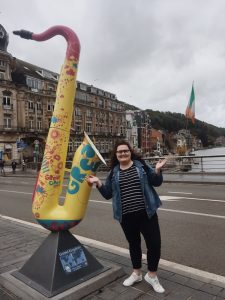
In terms of my experience beyond academics, I’d describe this part as the truly life-changing component. Unknowingly, I ended up living in the most sought after street in Leuven with a really great rental price (it was only a two minute walk to most classes). I lived in Leo XIII Seminarie (upon applying, I had absolutely no idea what a seminarie was but soon discovered). I got placed in a section that had 13 people – with 11 different nationalities (from China, Belgium, the UK, the Philippines, Indonesia, Thailand, India, Northern Ireland, Czech Republic, Mexico…). What made this experience with my own “Pangaea” all the more interesting was the ages of the individuals. Their ages ranged between 19 and 50. My time spent interacting with them can be described as an eye-opening, perspective-shifting, heart-softening and humbling experience. The people in my community taught me about the resilience of their cultures, they showered me in generosity, hospitality and shared their life experiences with me that left me in awe. We all took turns cooking for each other and introducing one another to our country-specific cuisine and I was forced to learn to make my first Malva Pudding ever. Apart from my great living experience, I spent much time travelling. During my time abroad, I was able to see a glimpse of eight countries and a total of 23 towns/cities. Many people ask me what my favourite town was, however, each one holds such special memories. In the Netherlands I met my ultimate role model at a women’s conference… in Italy, I spent amazing time with three peers from my degree and many places included Sandri and I having amazing adventures (from overpriced potato in Prague to the old town of Luxembourg). It was truly a blessing to share this exchange with Sandri, for us to grow in our friendship, to support each other through the challenges and to explore new places with our “Tuesdays are for Travelling” day trips (since we had no class), waffle and fries trips (the Belgian delicacies), group projects done together and our strengths complementing one another – ensuring the best experience possible. Most times, when travelling by myself, I’d end up going to hidden away places (from Dasing to Barneveld to Beilstein) upon which most times Europeans would ask me “where is that even?” to which I would respond “I don’t even know”. I’d spend much time monitoring the Flixbus and Ryanair app looking for cheap buses and flights and always found great deals. Another massive blessing was being able to connect with other International Business students who opened their places of accommodation and always took the time to show me around where they lived. Traveling yanked me out of my comfort zone and the thought of arriving in random places by myself always initially frightened me but I simultaneously was adamant that fear would not hold me back from all the adventure that waited on the other side. During my long bus rides and walks down palace-filled streets and photo-taking in yellow flower fields, I came to realise that I am stronger and more courageous than I had ever known. Everyday I found myself in awe and would often burst out laughing at the fact that I was living in and travelling across Europe – a dream that once seemed impossible. There’s no way that I could possibly begin to describe my entire experience here, however have been intentional along my entire journey to journal and art my way through – making sure that I never forget the massive shift that took place in my life over this (almost) six month period of my life. If you’re reading this and wondering whether you should take a leap, dive into the unknown and go on an exchange… my answer is YES YES YES! May your heart be awakened at the little I’ve shared about how this time of my life changed me completely for the best, introduced me to the authentic me and deepened my position in Love like never before… may you refuse to let anything hold you back and may no circumstances be the deciding factor about whether you should go or not. Decide that you want to go, have faith and watch an adventure of a lifetime unfold before your eyes. If this even slightly resonates with you, ask yourself… if nothing was impossible, where would you go and what would you do?
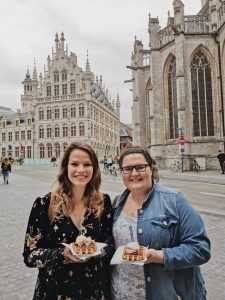
Return to Stellenbosch:
The thought of returning to Stellenbosch was one that I often imagined while in Belgium. The hardest thing about my exchange was leaving my church community and being away from my friends that had actually become my family. However, I intentionally made sure that I lived in every moment while away and ensured I embraced every moment, every possible new friendship and every opportunity. Towards the end of my exchange, I knew that it was time to go home. Saying goodbye to Leuven was a bitter sweet moment but my transition back to Stellenbosch actually was more seamless than I had ever imagined. I heard a lecturer say in class before leaving for Belgium that returning back from an exchange is often more difficult than leaving. I’m grateful that she said this when she did because it once again helped me to process this part of my exchange as much as I could before actually arriving back. I arrived here aware that things would be different… I believe that things could have been very different if I had not known this. There is no doubt that my time away fundamentally changed me. I grew in independence, confidence, strength, courage and most importantly, I learnt to be my best friend. I discovered that I am a unique, colorful, bubbly, bold and innovative woman of God. I’d say that one of the most difficult things about being back is that my exchange is pretty much just like a secret – something that no one else will ever have a reference point to. Many people have seen me in class, on Victoria street, in a line outside MyBrew or sitting in church and have excitedly asked “HOW WAS IT?” I always look at them with an expression on my face that says “IF ONLY YOU KNEW”. It is incredibly difficult to put into words everything that I experienced, everything that changed within me and everything that I grew in. However, I have been having a wonderful time having conversations with different people and seeing strings of words flow out my mouth where I finally realise exactly how much I changed. Belgium marks a Great Exchange in my life. Where I exchanged my fears for freedom, my doubts with confidence, my question marks with courage… a deep impartation took place and I have returned with a wealth of wisdom that I am so excited to share with everyone around me. My time overseas marks a period of a download of ideas which I’m ready to implement across the different spheres of my life. I am expectant to take what I learnt and impart it into the lives of others because my mission in life is to add value wherever I go. Just like my heart rose up and I woke up, I’m ready to help others awake and arise… in their studies, their identities, their dreams, their challenges, their finances etc. I have returned feeling more purpose-driven than ever before and I am in pursuit of seeking mentorship in the innovation realm and establishing my own business this year. I have a hunger for new knowledge, new wisdom and new opportunities. I find myself more alert than ever- absorbing all that I hear in class and my eyes are constantly open to identify places where I can fill the gap. I am inspired to see all the gold within me come forth and to see everything I touch prosper. The generosity and hospitality I experienced abroad has opened my heart and left me seeking to always be inclusive wherever I go. On my exchange, I learnt to listen to what others had to say and to love them through whatever they were experiencing. I believe that these are two key attributes that will help me equip and empower others because they provide the foundation to everything else.
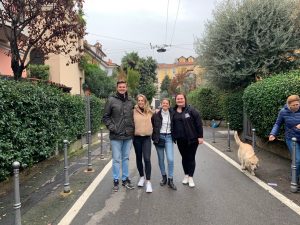
I experienced my exchange to be a window into all that awaits in my future. I know that I will spend my life travelling from nation to nation – equipping and empowering everyone I come into contact with. There’s a powerful truth that assures me that I will see exceedingly abundantly above what I could possibly imagine. The wonderful part of this exchange is that it granted me vision that I never had before. I can finally see what I am working towards. Although I plan to move abroad in the future in pursuit of the vision for my life, I intend to complete my education in South Africa. During my time of travelling across Europe, my love for South Africa grew exponentially and I was able to reflect on all that I have to be grateful for. No matter where I went or who I met along my exchange, nothing compared to meeting a South African, and reminiscing over the taste of braai meat, the bright sun, the beautiful beaches and most importantly, our beautiful country with the most beautiful, diverse and authentic people I have ever met. In conclusion, I would like to say thank you to Stellenbosch University (namely Sarah and Prof Erasmus) for pioneering and making this opportunity possible. Their commitment and devotion to the empowerment of the future generation is commendable and they will always form a special part of this exchange. Ultimately, the greatest thank you I have goes to my Dad who gave me a PhD in Bianca. He woke my heart up and showed me exactly who He created me to be. Now I get to lead other people to that place and help them embrace their uniqueness and the grand plans that are in store for them. On this exchange, a desire to see people discover their voice was birthed in me and I’m ready to spend every moment I have innovating, pioneering and adding value to Stellenbosch University, the Stellenbosch community, South Africa AND the world as a whole.
